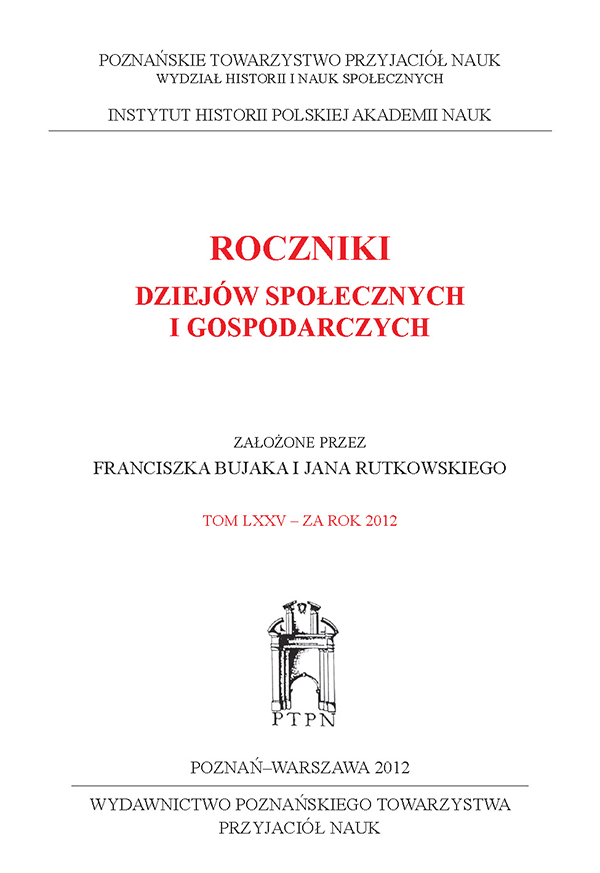The costs and benefits of microfinance. The market for Dutch East India Company transportbrieven in 18th-century Amsterdam
DOI:
https://doi.org/10.12775/RDSG.2012.01Abstract
The costs and benefits of microfinance. The market for Dutch East India Company transportbrieven in 18th-century Amsterdam
(Summary)
Contemporary institutions engaged in extending micro-loans do not usually grant such loans to the poor due to the latters’ inability to provide appropriate collateral and their insufficient creditworthiness. In modern times the Dutch East-India Company created a financial instrument called the “transportbrief” which enabled poor employees of the Company to obtain loans on the financial market. The loans were secured with the right to future salaries of the Company’s employees. This article answers the question of how the instrument was able to create a primary and secondary market. The author also discusses the way in which the people engaged in trading in the instrument were able to value it correctly. To analyze the mass source information collected for the purpose of the research the author used the game theory and the information economy theory, as well as many statistical methods. The transportbrief system worked effectively, but to the cost of significant limitation of the Company employees’ freedom. The purpose of creating the instrument was to safeguard the interests of the Company and to guarantee an inflow of new employees, and not to combat poverty. Despite these flaws the transportbrief is an interesting structure, which reflects the evolution of financial markets; it may also be an inspiration for institutions which nowadays engage in extending micro-loans.Downloads
Published
2012-01-01
How to Cite
1.
MALINOWSKI, Mikołaj. The costs and benefits of microfinance. The market for Dutch East India Company transportbrieven in 18th-century Amsterdam. Roczniki Dziejów Społecznych i Gospodarczych. Online. 1 January 2012. Vol. 72, pp. 15-43. [Accessed 8 July 2025]. DOI 10.12775/RDSG.2012.01.
Issue
Section
Artykuły (Articles)
Stats
Number of views and downloads: 398
Number of citations: 0



